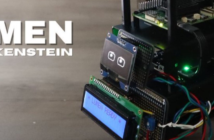Introduction: Smart contracts, powered by blockchain technology, have revolutionized various industries by enabling decentralized, transparent, and tamper-resistant transactions. These self-executing contracts have gained popularity due to their automated and trustless nature. However, as with any technology, they are not impervious to vulnerabilities. In this article, we will explore how smart contracts can be hacked and discuss potential mitigation strategies.
- Coding Bugs and Vulnerabilities: Smart contracts are typically written in programming languages like Solidity. The presence of coding bugs or vulnerabilities within the contract’s code can provide an entry point for hackers. Common programming errors, such as reentrancy, integer overflow/underflow, and improper input validation, can lead to exploitable weaknesses.
Mitigation:
- Conduct thorough code audits and testing to identify and fix bugs before deployment.
- Implement best practices and security guidelines for smart contract development.
- Employ formal verification techniques to mathematically prove the correctness of the contract.
- External Dependency Exploitation: Smart contracts may rely on external data sources, APIs, or other contracts for their functionality. If these dependencies are compromised, they can be exploited to manipulate the contract’s behavior. For example, an attacker could compromise an oracle feeding external data to manipulate the contract’s outcomes.
Mitigation:
- Implement multiple oracles from reputable sources to reduce the risk of a single point of failure.
- Use secure communication channels and encryption to protect data transmission between the smart contract and external dependencies.
- Implement reputation systems or consensus mechanisms to verify the authenticity and integrity of external data sources.
- Governance and Human Error: Smart contracts are designed to be immutable, meaning they cannot be modified once deployed. However, errors or vulnerabilities can still be introduced during the contract’s initial deployment or during subsequent upgrades. Additionally, if the contract relies on a centralized governance model, the individuals responsible for making changes could be compromised or make errors, resulting in a security breach.
Mitigation:
- Implement rigorous testing procedures and peer review for contract deployment and upgrades.
- Consider using decentralized governance models that involve community consensus and multi-signature mechanisms to reduce the risk of human error or malicious actions.
- Social Engineering and Phishing Attacks: Hackers often target individuals or entities interacting with smart contracts through social engineering or phishing attacks. By tricking users into revealing their private keys or interacting with malicious interfaces, attackers can gain unauthorized access to the contract and manipulate it.
Mitigation:
- Educate users about the risks of social engineering and phishing attacks.
- Encourage the use of hardware wallets and secure key management practices.
- Implement multi-factor authentication and identity verification mechanisms to mitigate unauthorized access.
Conclusion: Smart contracts offer unprecedented opportunities for automation and decentralization. However, it is crucial to acknowledge and address the potential security risks they entail. By understanding the various ways in which smart contracts can be hacked, developers and users can implement robust security measures and best practices to mitigate vulnerabilities. Regular audits, diligent code development, secure external dependencies, and user education are essential for ensuring the integrity and trustworthiness of smart contracts in the blockchain ecosystem.



